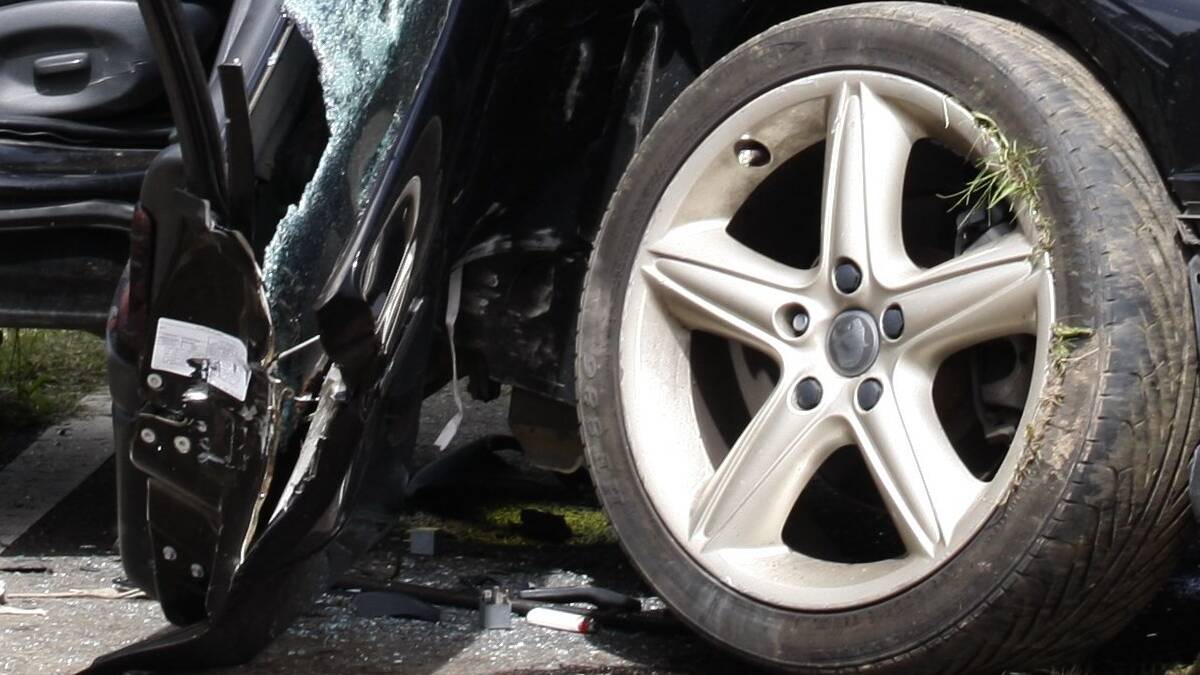
AN UPPER Hunter coal miner has been awarded $1.13 million in damages for serious personal injuries he suffered when he crashed his car into a tree at the end of a three-day shift, successfully citing work-related fatigue as a significant factor.
Subscribe now for unlimited access.
$0/
(min cost $0)
or signup to continue reading
His employer, Coalroc Contractors Pty Ltd, was found negligent for failing to take precautions to manage the risk of a fatigue-induced traffic accident on his way home from a weekend working three 12-hour shifts.
Troy Matinca was close to his Mt Hutton home, driving south along Macquarie Road at Warners Bay on Sunday, April 17, 2016, when he failed to negotiate a corner, side-swiped a tree, crossed back to the other side of the road and collided head-on with another tree in scrub 18 metres away from the bitumen.
It took emergency services an hour to cut him from the car. His right arm was de-gloved, and he suffered a traumatic brain injury, as well as a fractured skull, spinal and facial fractures, and other injuries.
It was argued in the Supreme Court that his accident was caused, or at least significantly contributed to by work-induced fatigue due to the nature and conditions of his employment, and that extended to the drive home.
Coalroc argued that its duty ended when Mr Matinca drove his Toyota Prado SUV onto the Golden Highway, and in any case that even if fatigue was a relevant legal cause, and its duty extended that far, it was not negligent given the procedures it had adopted to manage that risk.
Coalroc denied that work-induced fatigue was a "legal" cause of the accident, because speed and driving conditions had not been excluded as the cause. If Mr Matinca's case was successful, his employer argued, damages must be reduced because he failed to take "reasonable care" for his own safety.
Mr Matinca had worked as a coal miner since 2004 when he started working for Coalroc in 2016. Coalroc was engaged by Ulan West Operations to supply undergound mining services.
The mine was 270 kilometres from Mr Matinca's home, and the weekend roster involved three shifts from 6am to 6pm each Friday, Saturday and Sunday.
He went to bed about 8pm on the Thursday night, and left at 2am to make the drive which took around three hours and 15 minutes. Once there, he shared a cabin with a workmate at a caravan park in Mudgee, a 45-minute drive from the mine, then left after work on Sunday night.

Dr Anup Desai, a specialist respiratory and sleep physician gave evidence saying a short nap of less than 30 minutes before or during Mr Matinca's journey home would have reduced his fatigue.
"[a] reduction in work hours and travel time ... and closer accommodation to work for the Friday and Saturday nights would all have allowed greater opportunity for sleep ... and therefore would have likely reduced his sleep restriction and subsequent driver fatigue on the final journey home"," Dr Desai said.
A Coalroc procedure was for "drive-in/drive-out" workers to submit a personal travel management plan setting out the "controls" they would put in place to ensure they present "fit for work". Mt Matinca's travel time would have been monitored via such a plan, but Mr Matinca said he had not seen the travel plan, had not been asked to fill one in, and was never supplied with one.

Justice Joseph Campbell said that Coalroc would have foreseen that its system of work involved a risk of a work induced fatigue-related injury to Mr Matinca on his way home, including that he could be injured in a traffic accident.
His employer should have insisted Mr Matinca provided a personal travel management plan for consideration and approval, Justice Campbell said.
"The management plan that Mr Matinca would have provided, had it been required of him as it should have been, would probably have incorporated a proposal for a rest break of about 20 to 30 minutes at a town or ... truck stop along the route ... "
In that case Mr Matinca would have been refreshed, and probably would have made it home safely.


